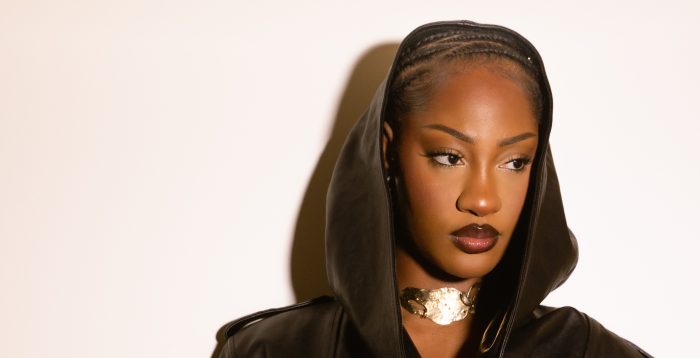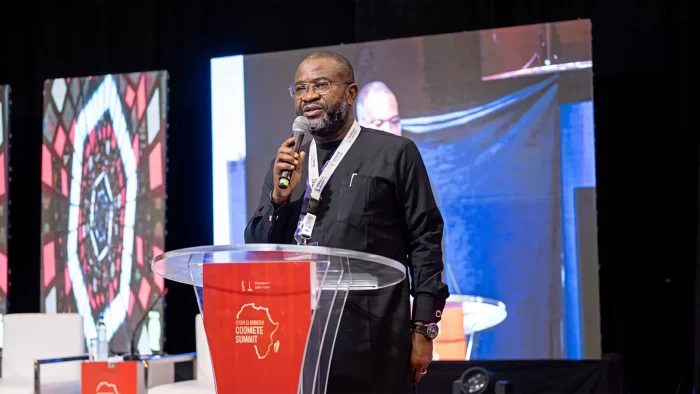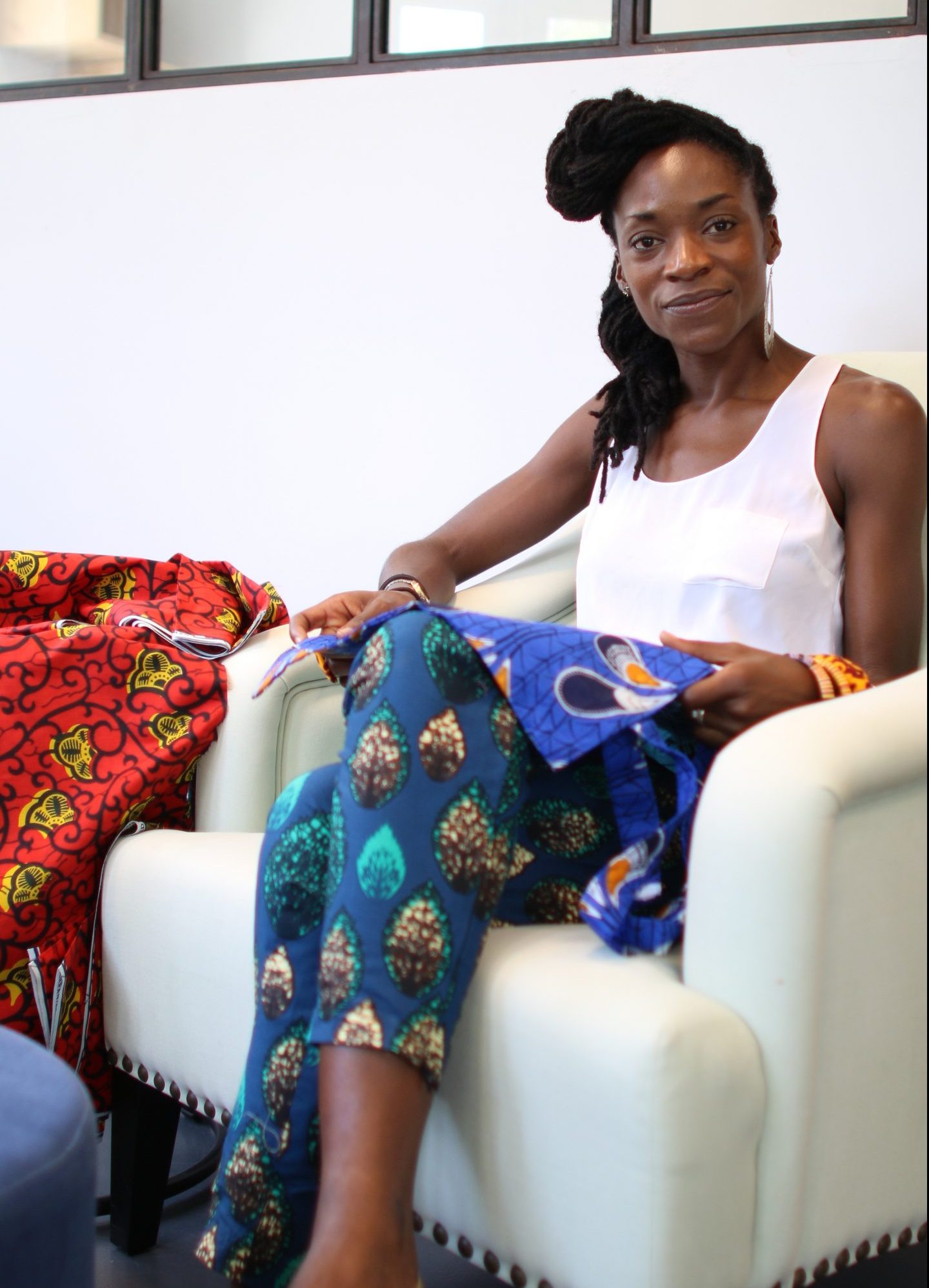
In far away Singapore, Nigerian-Italian Ifeoma Ubby is redefining African fashion. Through her colourful pieces, Ify (short for her first name) is wooing a diverse audience who eke out a living in the cosmopolitan south Asian nation of Singapore.
Born and raised in Italy by Nigerian parents, the designer who loves Fela Kuti’s music and Chimamanda Adichie’s works is proud of her roots and origin.
“I was born and raised in Italy from a Nigerian family. They moved in the early ’80s to Italy. I was born and raised in Venice exactly and I basically lived all my life in Vernice. I think I am super lucky because I was raised with both cultures. The Italian culture coming from living in Italy and the Nigerian culture coming from my parents.
[ad]
With her label Olive Ankara, the stylist and designer is showcasing her roots through the popular Ankara fabrics but with Italian finesse. With her small unit of artisans, Ifeoma has created a fashion brand redefining the “rules” about who should wear and how to style Africa’s most popular fashion fabric.
Ify has not always been in fashion, she trained as a scientist and later earned a PhD conducting cancer research in Italy, she revealed to The Guardian during a Zoom chat.
“I did my PhD in Human Molecular Genetics in Italy and then I decided to move abroad to do my Post-Doc on cancer research and it happens that a friend of mine was living here in Singapore and it was a time where I was looking for a post-job position, and I had a skype call and I looked into Singapore and I found two or three different laboratories and they were doing super cool research project so I applied and got the position.
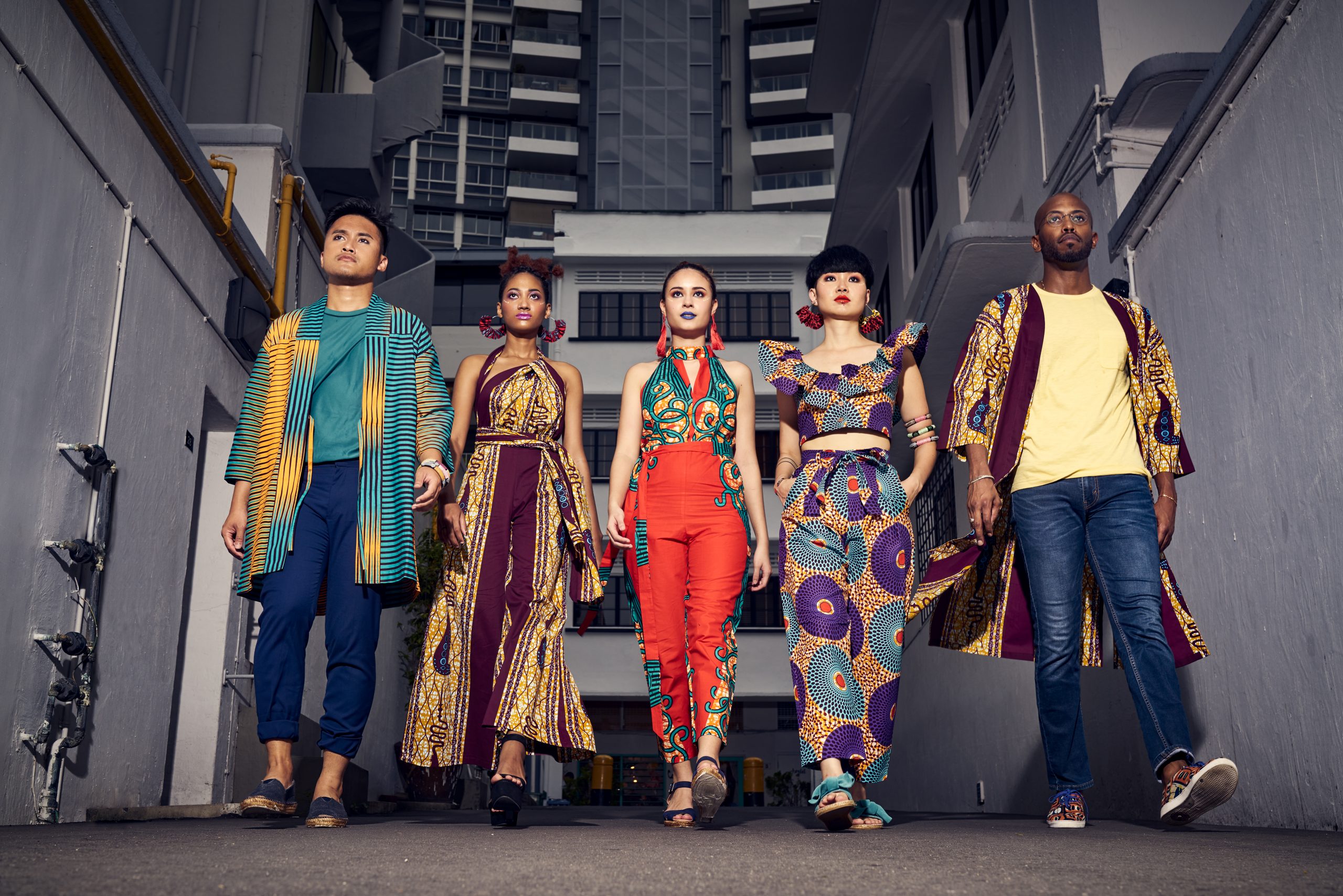
Thirsty for more education, she moved to Singapore in 2013 hoping she would be there for two years before returning home. Fashion was not part of the plan but the switch from the science lab to stitching clothes together happened when she realised Africa had little or no representation in Singapore.
“I never thought I would have been a designer as that was not my dream. It happened that when I moved to Singapore seven years ago, I realised that you could find people from everywhere with different cultures and religions. But then I realised that Singapore had a massive problem – there was no African culture. No one knew about Africa, the food, the culture, the religion, nothing.”
The need to fill the gap created by the unavailability of ready-to-wear Ankara fabrics when she could not get them from stores in Singapore was what gave birth to Olive Ankara.
“At the beginning, I never thought about starting a brand. I was just doing clothes for myself and then I realised that people were asking about the clothes, fabric and history. Friends started asking me to make clothes for them. So I decided to do a small collection just to test how the market was, this was in 2016 when I was still working as a scientist in the laboratory.”
While she was still carrying out her research projects, Ify was also taking out time to make Ankara pieces. By this time, people had started showing interest in her designs.
[ad]
As her desire to take up a new challenge full time in an entirely different field was growing, her desire to educate people in Singapore about the African culture was also being fuelled. Ify could not pass off the opportunities.
“The main reason I decided to take that leap of faith and move from science to being a full-time designer is that one day I would like to say I tried. I do not want to have regret. I feel the need to also educate people about the African culture. So the only way to do that is to give 100% of my time.”
Thanks to her mum who showed her the ropes in her early years in Italy, Ify was able to pick up from where she left off quickly. She made her very first dress as a teenager when she didn’t like her mum’s design, “My mum used to sew and she taught me how to sew. She sewed all our clothes alongside my grandmother so I learned from them. I remember at age 13 or 14, I told my mum to make a particular dress because I did not like the childish version she was making for us and then she asked me to make mine,” she reflects during our Zoom chat.
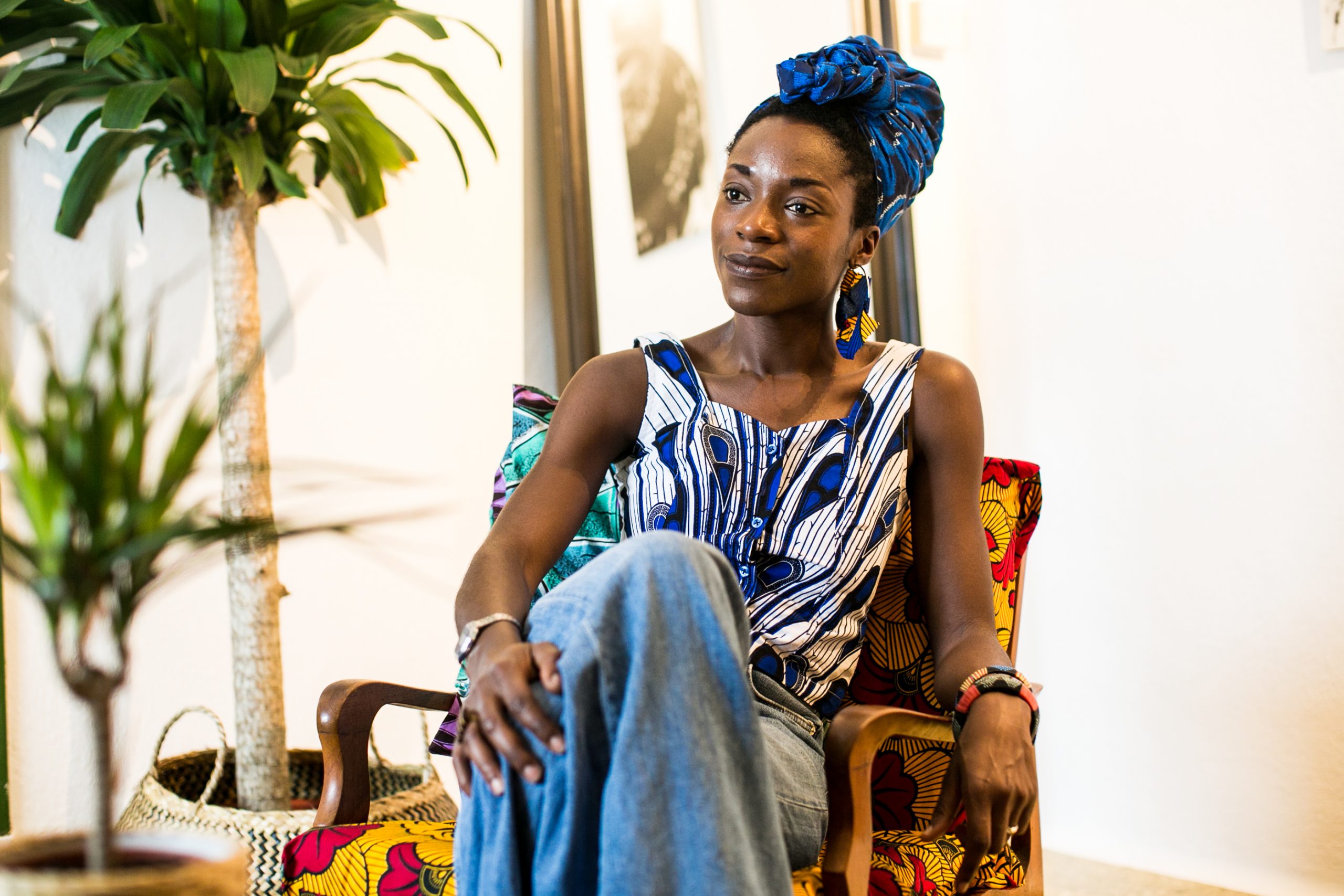
Going full time into fashion meant she had to brush up her skills. When she decided to start her label in Singapore, Ify took some courses and did self-trainings in fashion design to understand patterns and cutting.
Even with a plethora of malls packed with major labels and designers, Ify’s designs were unmissable and it didn’t take long before she began to command attention because of the uniqueness and freshness of her designs.
“Well, because they are surrounded by different cultures, and people from all over the world, people in Singapore are very open-minded and their acceptance was really good and was unexpected. People here are culturally curious and that is why Olive Ankara stands for bold style for the culturally-curious. They really want to know about other cultures because they have never had the experience to feel and hear it. I think this is also the reason I keep moving forward, she explains.
Though the Ankara fabric she works with is synonymous to Africa, Ify explains she is blending Africa, Europe and Asia to create eclectic styles that will fit the tropical nature of her environment and satisfy everyone regardless of their nationality.
“What I do basically is a blend of all my journeys, my heritage, the African print then some Italian styles. For example, I fuse some Chinese designs with a little bit of Italian twist in the style and then the African fabric to build something new which is a blend of three different cultures and I realised that people really like it,” she explains..
One of her unique designs is what she calls the Afromono. Basically, it is a Kimono with Japanese art and African patterns. Apart from creating unique designs, Ify also wants to change the perception that clothes made from Ankara can only be worn occasionally. She believes Ankara should be a common feature in wardrobes.
“I want to change the idea that Ankara is meant to be used basically for occasions. The colours are so bright and vibrant that you feel you cannot wear it everywhere. So I try to create designs that can be worn from day to night. I do women and kids wear from skirts to pants, blazers and tops. I also teach my customers how they can incorporate Ankara in their normal wardrobe so they can wear it to work and not just for occasions.”
Believe it or not, she reveals 65 per cent of her clientele are Asians who have embraced her pieces because of her detailed attention. Ify has woven her Italian and science background into her craftsmanship and both play a pivotal role in her work.
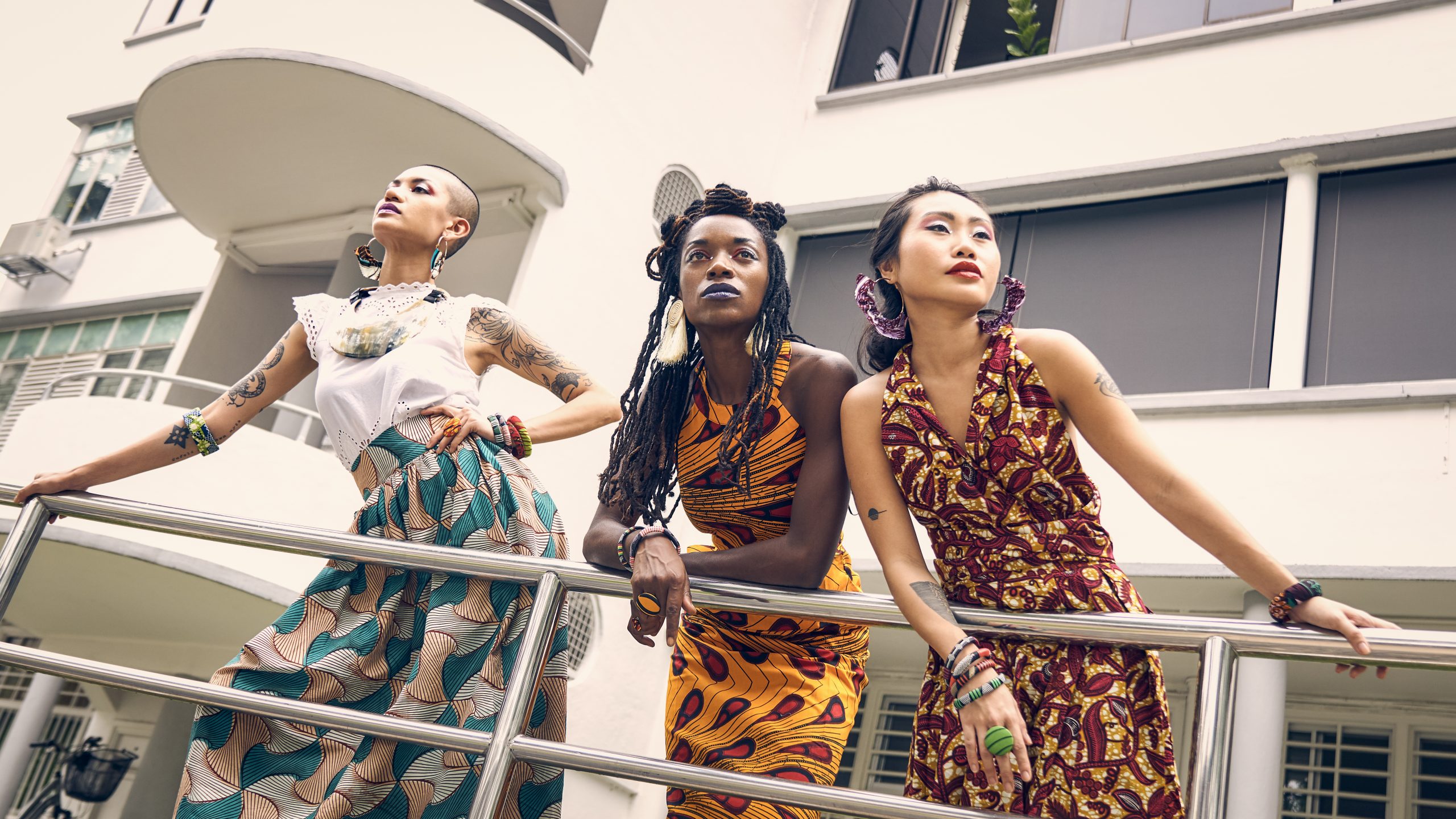
“I work a lot on details. I pay a lot of attention to little details which I get from Italian fashion and my background, as a scientist where every single thing counts,” says Ify.
For inspiration, Lisa Folawiyo, a top Nigerian designer noted for incorporating traditional West African textiles with modern tailoring techniques with an emphasis on beading and sequin trim is one of Ify’s favourite designers, she reveals.
Sourcing for fabrics hasn’t been smooth. Currently, she sources her fabrics from Africa through the help of a cousin who has to visit multiple fabric markets and send her pictures from which she chooses from. The fabrics are then shipped to her base in Singapore.
Though Ify loves the idea of supporting the economy back in Africa by sourcing fabric from the continent, she doesn’t see it as eco-friendly and sustainable because in her words, “Shipping down to me is not sustainable in any way. I am using a lot of carbon footprints because I ship my fabrics here but you have to find a balance so for now this balance is still okay.”
Ify is married to an Italian who also moved with her to Singapore. With her team of seamstresses, all based in Singapore, Olive Ankara produces more female clothes than male because of the ease she discloses, “It was easier for me to start with the women’s collection and I found more inspiration in that. My whole idea is to design modern clothes that would allow women to express themselves.” But despite her focus on women that, she still released unisex collections every year..
Runway shows are ready staples in fashion capitals of the world and Singapore isn’t left out even though it cannot compare to Europe and America. As a melting pot of different nations and cultures, the Lion City holds pockets of fashion events from time to time and Olive Ankara has been lucky to showcase in one of them.
“Recently, I participated in the first Singapore beachwear fashion show. It was a nine-day runway event with sustainable and small brands like mine based in Singapore, Manila and Australia.
Ify’s switch has been quite smooth but science remains a part of her as she isn’t ruling out a return to the lab. “Who knows one day I would go back to science but for now I see myself working on the brand because there are so many other things that need to be done especially in Asia where people do not really know about the African culture..”
Her effort has paved the way for her and earned her works a space on the runway. In 2019, she got an award for her contribution to fashion and science during the Independence Day celebration of her country Nigeria.
Ify, though her brand Olive Ankara represents the hope of self-affirming and self-believing Africans who launch out to different places across the globe to live their dreams. She has paved the way in Singapore for many Africans and hopes those coming after her will be more open-minded, share more of Africa to the world and evolve with other cultures.
[ad unit=2]



